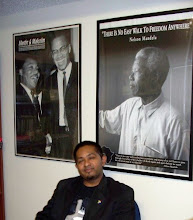When fraudulence and leadership discrepancy occur at highest levels of power in South AFrica, it is not merely illegal. Such illegality should be seen and understood as acts of injustice and crimes against humanity. These high order criminals suck the resource out of our economic system, which should be reforming the lives of our poor, marginalised and economically frustrated South Africans.
When people of power steal from the coffers of our national supply and make multinational trade offs that favour their personal greed and bank accounts, it would be appreciated if their self interest ideals had no effect on the lives of our working class.
The reality of life however, is that we are connected and unfortunately what ever high level leaders go about, surely affects our everyday people. It might sound absurd but the ethical code and conduct of our honourable organisational and societal leaders, and their choices, have direct effect on our everyday lives.
In a new order of democratic fertility leaders need to be informed by leadership principles and core values that interrogate systems that fail people. Leaders need to go through or be refreshed by personal change experiences that bring value to the lives of people that they serve.
There are too many leaders who accept the things they cannot change. Especially when that change calls for responsible and active critique of unjust social and organisational happenings.
Leaders need to be courageous in going about bringing change in areas they think cannot be changed. Leaders who have inspired the world have unwittingly gone about pursuing change in places and spaces that others said were impossible.
Leaders need wisdom to know the difference between costly change and possible change. Knowing the difference should not result in inaction concerning change that is costly.
It was a costly exercise when Steve Biko challenged the Apartheid dictators of South Africa. Aung San Suu Kyi knows costly change through her detention for the course of freedom in Burma.
Leadership within communities and organisations in our 21st century require a revamping of the serenity prayer, and it goes as follows:
God, grant me:
Serenity to understand the things that seem impossible to change,
Courage to change the things I can,
Perseverance to engage things that will be costly to change,
and Wisdom to know how to acknowledge the need for, implementation and realisation of positive change!
Wednesday, September 15, 2010
Subscribe to:
Comments (Atom)

